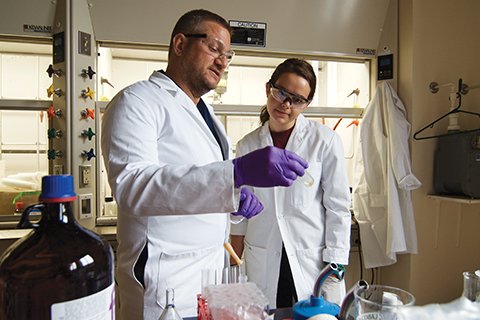Chemistry
Chemists interact with nature at a fundamental, molecular level—its composition, properties, and transformation into new substances. They are interested in molecular structure, the properties of materials, and in reactions that convert one material into another. Chemistry significantly impacts many fields, including medicine, materials science, genetics, biology, pharmacy, food science, and environmental science.
Careers
- Research scientist
- Chemical safety program manager
- Intellectual property or instrumentation specialist
- Chemistry professor/teacher
- Chemical engineer
- Pharmacist
- Geochemist
- Forensic science technician
- Communication writer/editor
- Toxicologist
What will I study?
The curriculum encompasses the major subfields of chemistry—the theories, techniques, and tools. It includes physics, mathematics, and the liberal arts.
You may select an area of emphasis:
- Bioscience/Bioproducts
- Chemical physics
- Chemistry education
- Environmental chemistry
- Materials chemistry
Or choose a dual track:
- Chemistry and biochemistry
- Chemistry and biology
- Chemistry and food science
You may also pursue individual research projects with chemistry faculty.

